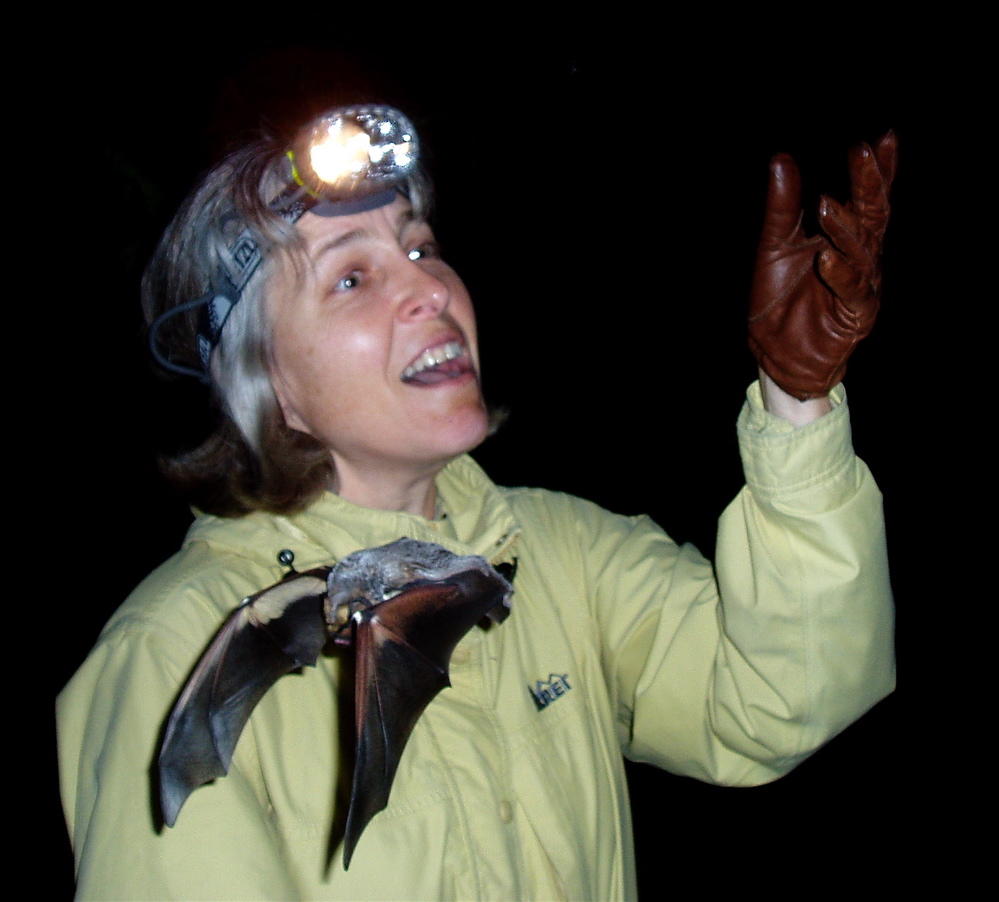Be glad you're not a cave bat
If you care about bats, by now you have doubtless heard about the horrific White Nose Syndrome (WNS). This is a disease killing up to 90-100% of bats overwintering in caves throughout the northeastern US, and we believe it is probably here in Tennessee by now. The disease is apparently caused by a fungus, Geomyces destructans, that may have been somehow brought to the US from Europe. This fungus thrives in cold caves and gets into bats who hibernate there. The fungus or something related to it kills bats by causing them to burn energy they need to make it through the winter. It was originally found in 2006 in a cave in New York state and has been spreading disease-like from that epicenter with alarming speed. Bat biologists can't say exactly what, if anything, can be done to slow the speed of this nightmare but are scrambling to evaluate alternatives. The government has closed all caves in the area, but has no control over caves on private land. It's a huge sacrifice to ask cavers to stay out of caves, but if there's a chance that humans are involved in spreading the fungus, it seems worthwhile to steer clear at least until we understand more.
Someone asked me recently if I was going to change my plans and work on WNS instead of bat migration. My response is, for now at least, no. It's just too depressing. I'm excited about some work my advisor has started looking at high-altitude foraging of Mexican Freetail bats as they track insect migrations and prepare for their own southward migrations in the fall. But it's too early to say what my research proposal will end up including.
For now, I've got enough on my plate just adjusting to life in Knoxville, keeping up with the core curriculum for newly entering graduate students, and learning the ropes of being a teacher myself. I managed to escape any teaching duties in San Francisco, but here I'm a TA for two sections of Bio 130, the introductory biology class for biology majors, covering biodiversity and topics such as ecology and evolution. The old saying that the best way to learn something is to teach it turns out to be true. It's kind of fun to have that captive audience of young, impressionable minds, and to see what kind of a difference I can make for them. The first step was to ban all cell phone usage of course.
The academic life here is every bit as intellectually challenging and satisfying as I had hoped. We spend time sitting around discussing topics such as "what is a species, anyway" and reading Darwin. Friday afternoons there's a seminar presentation by one of the faculty or some invited scholar, and most of the department turns out and then heads down afterward to the local pub to carry on the conversation. There are politics and gossip, of course, but it doesn't seem to be out of control. My education from San Francisco State gave me a solid foundation from which to follow most of the debates, for which I am very grateful.
Certainly, I miss my friends, and San Francisco, and familiar culture and climate. Adjusting to the move has been a larger challenge than I expected, in part due to some unexpected family tragedy just before I moved. But I am committed to this adventure and game to see where this leads me.

